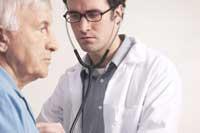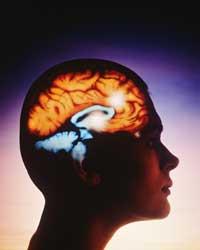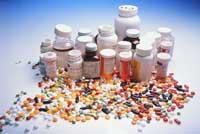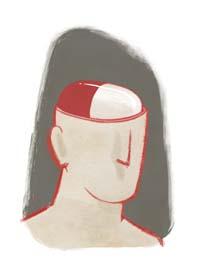Placebo effect, cure without medication
2009/05/24 Kortabitarte Egiguren, Irati - Elhuyar Zientzia

The placebo effect is almost antienfermedad (in Latin I will create placebo = nice). It is the ability of our brain to respond to a suggestion, which responds to the suggestion that you are taking something that will benefit you, with which the neuronal responses it gives are really useful to heal and recover the “sick”.
The secrets of the brain

The brain responds to the suggestion that you are taking something that will benefit you. (Archive)
In some people the placebo effect has a lot of strength and in others nothing. The University of Michigan conducts a study to clarify the cause. According to this study, it seems that the placebo effect on people to whom the possibility of obtaining the prize produces a great pleasure is greater than in others. That is, the greater the hope of the patient in this medicine, the greater the placebo effect.
The explanation is in a specific core of the brain. This core is activated when it is expected to obtain a prize or pleasure, even under the influence of certain drugs. When we think a specific substance or treatment takes away pain, this nucleus releases a neurotransmitter called dopamine that works as a natural analgesic. Dopamine is precisely the one that produces the feeling of pleasure.
As big as small as small

However, as we have mentioned above, there is a huge difference between one person and another. Why is the placebo effect sometimes so large and sometimes so small? It is not yet very clear. To do this, it is necessary to analyze the genetic aspect, among other aspects, whether the differences between people, between women and men and whether the optimistic and negative people respond differently.
This is what experts are doing. Researchers at the University of Michigan, for example, have studied whether or not optimistic people have more placebo effect than negative ones, and have seen that optimism has nothing to do with the placebo effect. The placebo effect is more complex.
The only thing they saw to be related to the placebo effect is anxiety: people with a lot of anxiety have less placebo effect. It is logical. Because if you are receiving treatment and have a lot of anxiety and are very concerned about treatment, it is normal to decrease in part.
Currently, in clinical trials of new drugs, the placebo effect is always taken into account. A group of people taking part in the trial is given the medication to be tested and the control team is given a placebo. Thus, the drug should get more obvious effects than placebo to check its functioning.
As for the placebo effect, the opposite phenomenon must be taken into account. Sometimes the opposite occurs. That is, there is one who suffers the noebo effect (in Latin nocebo = it will affect me): in principle the treatment has no effect, but the response that generates in the neuronal systems is not positive, but negative.
Published in 7k

Gai honi buruzko eduki gehiago
Elhuyarrek garatutako teknologia





